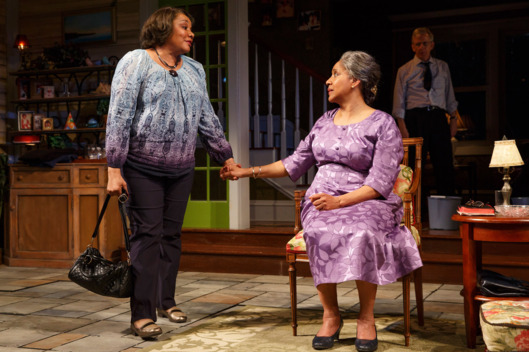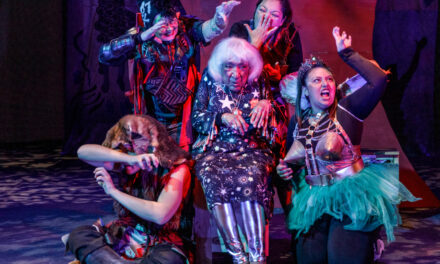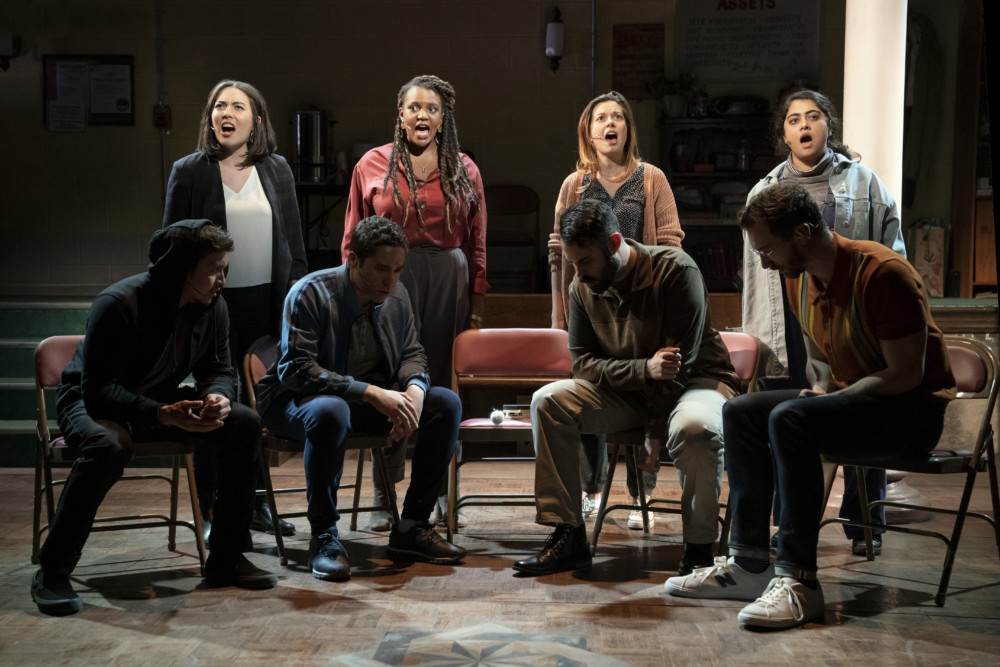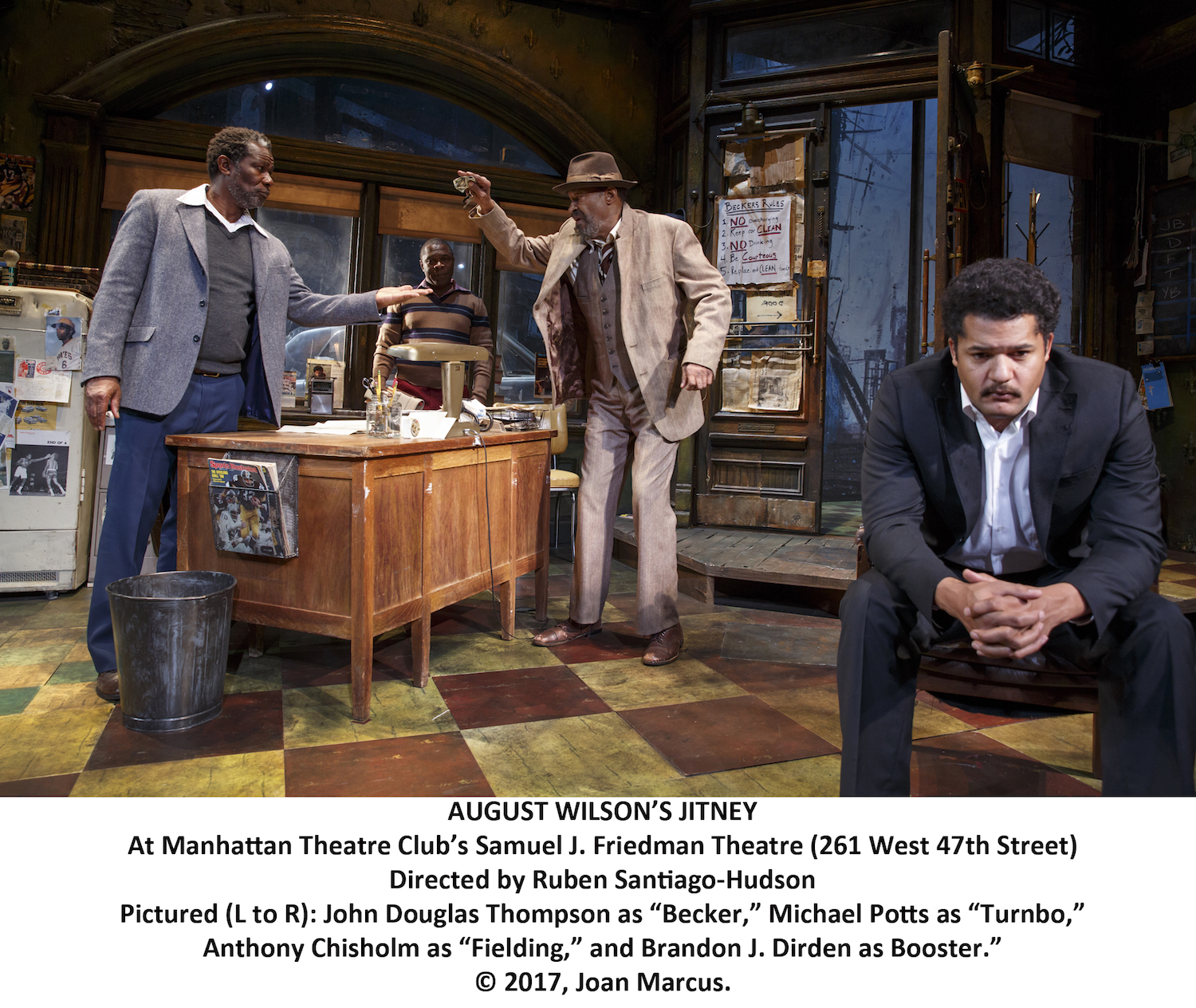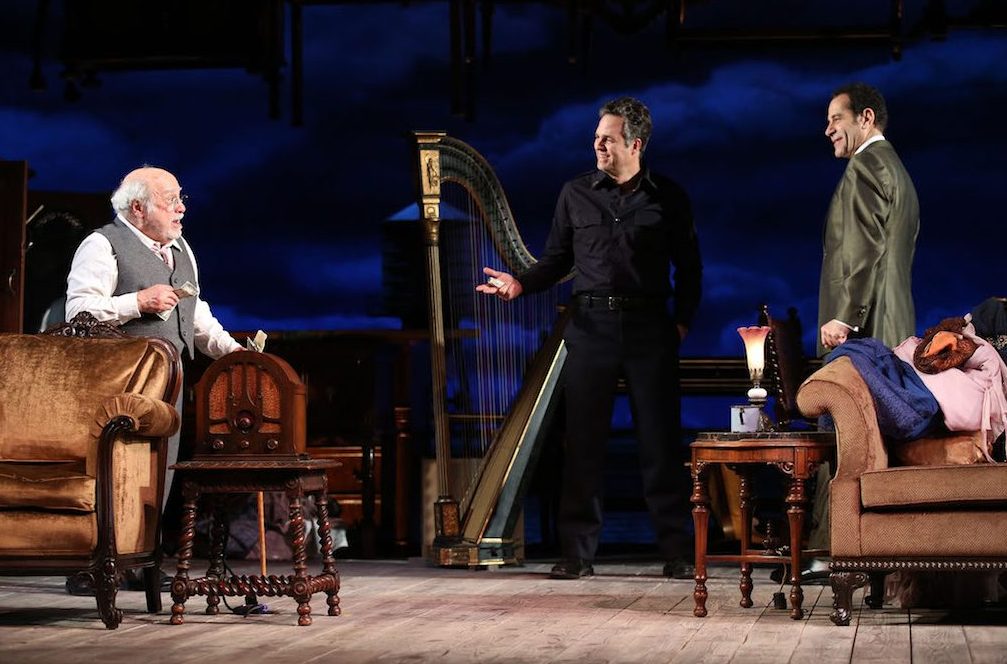By Samuel L. Leiter
Rising young playwright Tarell Alvin McRaney’s Head of Passes, which the playwright says was inspired by the Biblical story of Job, is an occasionally potent but structurally awkward play set in a former bed and breakfast in the wetlands of Louisiana’s Head of Passes, “where the Mississippi River meets the Gulf of Mexico.” Its principal value lies in watching Phylicia Rashad demonstrate the alchemical power of a great actress turning dramatic dross into theatrical gold. Almost as memorable is G.W. Mercier’s remarkable set, which accomplishes a breathtaking coup de théâtre reminiscent of a similar transformation in Branden Jacobs-Jenkins’s Appropriate a couple of seasons back, when a violent storm alters its attractive living and Florida rooms into a wreck with collapsed walls and ceilings, and waterlogged, caved-in flooring; the storm itself might have been Katrina had the play not been set in the elusively described “Distant Present.”
Rashad plays the aging, African-American matriarch Shelah, the super-pious mother of two men, Aubrey (Francois Battiste) and Spencer (J. Bernard Calloway), and an adopted daughter, the drug addicted Cookie (Alana Arenas), who arrives desperate for money. Shelah lovingly raised the girl, offspring of another woman by her late, philandering husband, but their relationship is in the dumps, and Cookie’s about to do something with ominous consequences. Gathering with these conflicted siblings are several friends, all with their secrets, there for Shelah’s surprise birthday party set up by her boys.
Nonfamily attendees include Creaker (John Earl Jelks) and Crier (Kyle Beltran), a father and his son, an aspiring singer, helping with the food; Shelah’s sassy old friend, Mae (Arnetia Walker); and a physician, Dr. Anderson (Robert Joy), the only white guest. He’s there because Shelah is—like her home—on her last legs (her coughing and a bloody cloth tell all) and he wants her to reveal her condition to her children. She, however, is reluctant to do so, hoping somehow to first unite her troubled family. She’s also unwilling to leave her beloved, seriously leaking home, which she wants to bequeath to her sons so they can restore its bed and breakfast past; they, though, have its sale on their minds.
Shelah, who constantly casts her eyes and words upward to God (like Tevye), has a lot on her plate, but her Job-like suffering doesn’t really kick in until act two, following her home’s virtual destruction, when her friends appear to inform her of a series of tragic events. Angrily demanding they leave, she launches into a tirade directed toward God in which she questions her fate and faith, and confronts her own responsibility. This ranting monologue is so demanding that only an actress with the operatic TNT of a Maria Callas could carry it off. Rashad’s vocal authority, expressive charisma, and emotive understanding show she deserves to play Medea, which she’s said she’d like to play.
The two-hour play, written in a rich, even poetic, Southern patois, is well-directed by Tina Landau, excellently lit by Jeff Croiter, perfectly costumed by Toni-Leslie James, and given a superlative sound design by Rob Milburn and Michael Bodeen. It originated at Chicago’s Steppenwolf Theatre in 2013. In 2015 it was done at the Berkeley Repertory Theatre, which coproduced this staging.
It begins as a realistic family dramedy and then shifts, a few minutes into act two, to magical realism for Shelah’s seven-page diatribe directed at God, which sounds like faux-Euripides and makes the play as lopsided as its act two set. Forget that it comes after her loved ones depart following their delivery of devastating news, allowing her to remain alone in a house about to fall completely apart. And forget that the rant is delivered by an old lady whose lungs are coughing up blood. The speech itself is a one-way street of suffering, a sufferer’s plea without a response, lacking a sufficiently strong conflict to sustain its emotional grip. We’re moved more by the marvel of Rashad’s stamina, transitions, and focus than by what she’s actually saying. Still, her Shelah’s a grand performance and, now that we’ve seen it, it’s time someone gave Rashad a shot at the real Euripides.
Head of Passes. Through May 1 at The Public Theater’s Newman Theater (425 Lafayette Street, near Astor Place). www.publictheater.org
Photos: Joan Marcus





